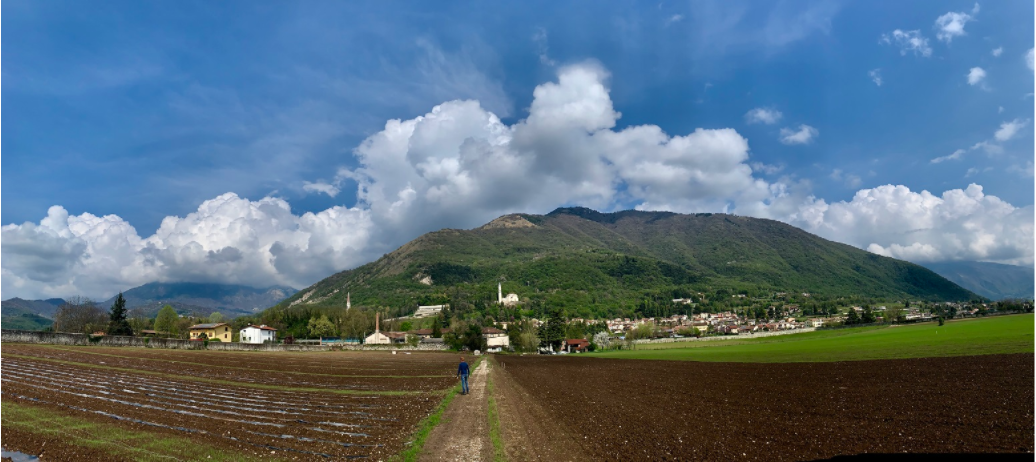
Santorso
The municipality of Santorso has been committed for many years to sustainable development, citizens participation and social issues. It is currently leading sustainable initiatives and synergies through a partnership with more than 10 other local municipalities of the AltoVicentino area (eg: “municipalities for sustainability”, energy desk, “salta la corrente”, and more). The MiT project could be a disruptive opportunity to move forward in this direction, adding more skills, tools and the knowledge that comes from being part of an international community of practice.

Type: Municipality
Population: 5769
Extension: 13,21 km²
Density: 436,71 inhabitants per km²
Key Aspects
Santorso has a twin pilot in Italy: Valsamoggia. The two communities will work independently but staying in touch and sharing experiences, programs and possibly resources.
Both pilots decided during the International Training to adopt Sociocracy 3.0 as a governance model for their Core Teams. The aim is to give the group the best chances to handle diversity and share power.
Context
Santorso is situated in the north east of Italy, in one of the richest and most productive industrial areas of the national territory. Its population amounts at just 6000 inhabitants, and the most of the citizens go to work or to school in neighboring towns.
On the other hand, citizens are very active socially, as dozens of associations with many different aims and interests work for the well being of the town. All of the organizations are also in good relationships with the municipality.
Transition Town Santorso is one of them and in the last 9 years it has created many opportunities for people to connect, share knowledge, understand the global context and develop local solutions.
At present we feel we have enough experience and cultural density in the area (about resilience and transition processes) that starting projects with a higher level of complexity is much easier than before.
Challenges
- Building long term and system thinking among elected politicians and municipal employees;
- Helping citizens and the municipality to understand the need and the value of adopting a more efficient governance model;
- Developing trained people on facilitation, sustainable issues and social innovation. As a consequence of the lack of financial resources, there are no groups or individuals in the municipality who are given this role. This is crucial in order to continue this systemic transition within municipalities;
- Reduction of bureaucracy, which normally hampers any action of the Municipality (e.g. ability to connect and involve civil society, to experiment new projects and processes);
- Being supported by parties regardless their political orientation. Parties also tend to concentrate all their energies and ideas during the elections period, becoming much less active once it’s over. Civil society suffers from this cycles because it lacks clarity about politicians’s motivations and intentions, and the perceived distance between these two categories grows even more;
- Need of mutual understanding between Municipality (its functions, prerogatives and capacities) and civil society.
Key activities so far
Giulio Pesenti was part of the Municipalities in Transition 2nd international Training of Tutors that took place in Jerica, Spain in January 2020.
4 actions so far:
- Comuni per la sostenibilità (Municipalities for sustainability – MfS)
- Sportello energia – Energy desk (legambiente)
- Controllo di vicinato
- Barbapizza
Tutor:
Giulio Pesenti Campagnoni (MiT Project)
Pioneer’s Core Team: (LIT)
Valeria Zaltron (Council Member)
Giovanni Toniolo (Head of Technical Department Carrè-Chiuppano Municipality)
Silvia Raumer (Teacher, Entrepreneur)
Marco Costa (Energy engineer, EIT Innoenergy)